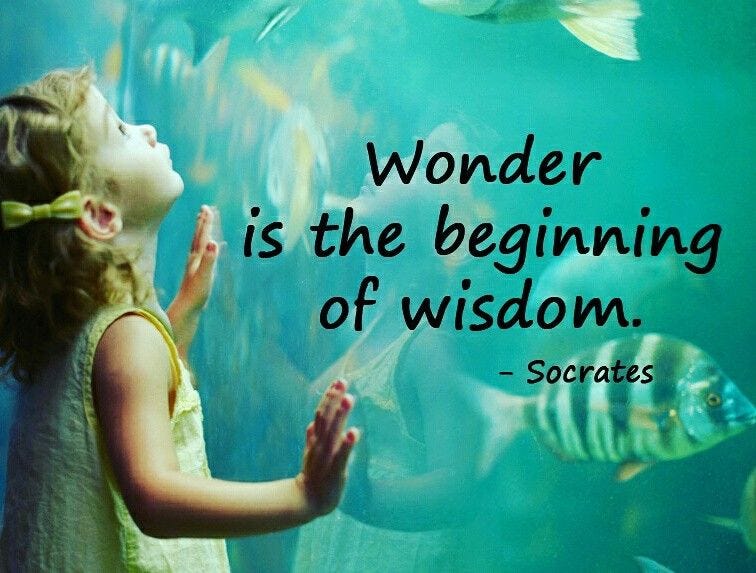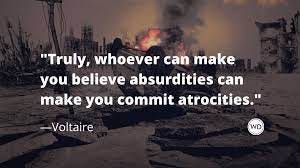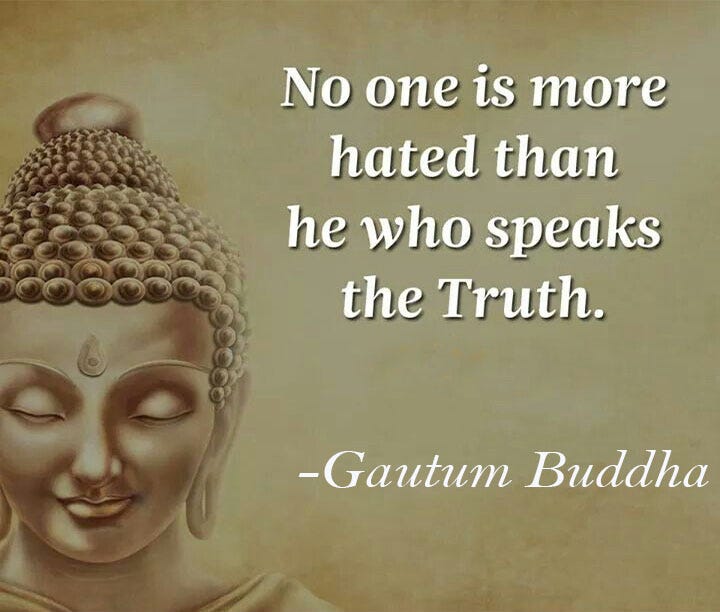Making Sense of Ideologies
"When you believe in things you don't understand, then you suffer" -Stevie Wonder
What are ideologies? The word ideology is one of the most commonly used words in today’s landscape of geopolitical, socioeconomic and religious dialogs and yet if you’d ask one hundred people what the definition of ideology is, you’d most likely get one hundred different answers.
Because the word ideology is a philosophical term, the concept of what an ideology is can be very complicated to define and a challenge to succinctly articulate what an ideology is, but the following is my feeble attempt at trying to describe what they are.
Here are my thoughts….
In general, an ideology is a thought-system, a worldview, a lens from which to attempt to understand the world we live in. Within every ideology exists some base of assumed knowledge, a grouping of related pseudo-epistemic, commonly held and accepted idea that the thought-system is constructed upon. With virtually all ideologies, the fact that the base assumptions were just that, assumptions, is eventually forgotten and the core beliefs become orthodox and hardened.
In other words, at the root of every ideology is a belief structure, usually comprised of several beliefs.
This quote from Picasso I find interesting because this line “well, you have to start somewhere” is a phrase that I hear from virtually every person I’ve spoken with that is immersed within an ideology as a way of defending their assumptions. The problem is that once an ideology is formed, it crystalizes and becomes nearly impossible to ‘erase from reality later on’.
The beginning of wisdom is this one humble admission: “I do not know, but I want to know”.
I would extend what Data says here to be this:
The first principle of true Science, Philosophy and Spirituality all stems the same sense of wonder: "I do not know. But I want to know".
Ideologies always begin epistemologically with some basis for knowing and/or knowledge but this same basic premise ultimately becomes an cognitive blind spot: "I assume to know (in this basic premise), therefore I don't need to go any further"
HISTORY
The word ideology was initially coined in 1796 by a French Philosopher named Antoine Destutt de Tracy and it was initially simply meant to be the science of ideas. Just like biology is the science of living organism, sociology is the science of societies, the concept of ideology was intended to be the scientific study of different ideas.
However, today it has taken on a completely different meaning. Generally speaking, each different ideology is a separate branch on the overall tree of structured thought systems (as a side, because the definition of ideology has veered so far off its original intent, a new word [Ideonomy] has been created to take its place as the word dedicated to describe the science of ideas).
From Wikipedia: An ideology is a set of beliefs or philosophies attributed to a person or group of persons, especially as held for reasons that are not purely epistemic, in which "practical elements are as prominent as theoretical ones."
The key word here in this definition is the usage of the word epistemic (from epistemology or the basis of knowing or knowledge). In other words, at the root of every ideology is the substitution of knowledge with an assumption, an apriori presupposition or some generally accepted ‘truth’.
The French, along with being credited for the concept of ideology, also have a concept called idée reçue, or “Idea Received” and it simply means a generally accepted opinion or concept. The cliché example of idée reçue would be the idea several hundred years ago that the world is flat, but in reality, when we look around currently in society with contemporary viewpoints, there are countless examples of ideas that large swaths of people accept as fact that have no scientific basis for.
The fault lines across society where we are now seeing seismic breakdowns can all be viewed as the fissures created by the tectonic plates of ideological differences. Atheists vs. Theists, Marxists vs. Capitalists, Scientists vs. Creationists, Liberals vs. Conservatives, etc.
These are all examples of ideologies and at the core of very ideology is an accepted idea, an assumed concept (AKA a belief), that is the basis for their mental processes from which they interpret existence. But is there any such thing as a good ideology?
MONEYBALL
To illustrate ideologies in an example that most people can examine objectively, let’s take a look historically at how MLB Baseball teams went about their business of constructing a roster.
In the film Moneyball, we’re provided insights into ideologies in a perfectly illustrated a tangible way and how these structured thought constructs operate within our lives. In this case, we can vicariously peer inside the inner-workings of how baseball teams previously developed their rosters with the intention of winning the World Series and how this previous ‘belief-based’ paradigm was very much stuck in dogmatic orthodoxy.
Interestingly enough, in this scene, the character played by Brad Pitt emphasizes the need to think differently, which is the requirement to break from from any ideology. The etymology of word heretic (derived from hetero and doxical) helps us understand that the meaning of hetero and doxical translates to one who thinks differently.
Moneyball is the true story, adapted from Michael Lewis’ book of the same title, about how Billy Bean (played by Brad Pitt in the film) revolutionized baseball by scientifically de-idologicallizing the process of player evaluation and the introduction of a new calculus for meeting a team’s primary objective; maximizing win totals.
Beane utilized an analytic system pioneered by Bill James and brought to the team by Paul DePodesta (fictionalized to the name Peter Brand in the film and played by Jonah Hill). James had developed his system over 25 years earlier in the late 70s and so it took decades for his innovative and disruptive concepts to be adopted. If you haven’t seen the film, I highly recommend it as an example of being able to break from from ideologies and think differently.
There are a few interesting observations in this film that we can see anywhere that we see ideologies:
It took an outlier, a perennially mediocre team and the smallest budget in MLB to buck the trend (due to a ‘nothing to lose’ scenario)
The old guard was adamantly and, at times, almost savagely resistant to change
Ideologies always stunt growth. Not only do they represent an area where evolution is stifled, but typically a segment of society that becomes corrupted to the point that devolution occurs.
There IS a spectrum of ideologies; ranging from very small and relatively insignificant (in this case a sub-culture within a team sport) to very large and profoundly affecting humanity (Marxism, for example)
The tell-tale marker for an ideology is when someone emphatically says “this is how it is!!!!”
This benign example should give you a fairly tangible and concrete illustration of ideological thinking and how adherents are heavily invested in maintaining the status quo. In fact, people become so identified with their own ideologies that for you to question their ideologies is perceived as an existential threat!! You’d be better off insulting the mother of an ideologue rather than questioning the ideology itself.
You can think that maybe baseball was a beautiful lie. Did Bill James ruin baseball with his analytics based player analysis? Many purists seem to think so but I’d argue that all James did was to reveal baseball for what it was. He didn’t ruin anything.
IDEOLOGICAL R0
During the recent global pandemic, most people learned a new term that virologists use to describe the transmissibility of any given contagion. The R0 (R Naught) value for a given disease is the factor which describes the average number of people that a given person will spread the disease to. A highly transmissible disease such as measles has a high R0 (17-19) whereas Ebola is relatively low (1.51 to 2.53).
Marxism, for example has an extremely high R0, for the simple reason that it appeals to the lowest common denominator. Marxism (Wokism, Postmodern Neo Marxism and Socialism) attempts to artificially level the playing field. Who would want to do this? People above the Mendoza Line or those below it? And no matter which axis or spectrum this artificial destratification occurs on, there are always more people below this line than are above it. Ergo, the majority of people are attracted to the promise of ‘equity’.
It’s probably a good idea to at least have a discussion of what are and are not ideologies and how we might come to some consensus on what the word means. At this point of time, the meaning of word ideology has become so muddied that it’s become a pejorative to refer to someone as ideological when in fact, virtually everyone is ideological!!
Socrates, the father of Western Philosophy and progenitor of Critical Thought, developed a method of systematic questioning to assist in helping people break down their beliefs and therefore become liberated from from their ideologies:
Richard the Saint put it best when he recently said:
I have always been of the opinion that until I am fully able to lay down my preconceived ideas of what I believe to be true, then I always run the risk of missing out on truth itself. If the last two years haven’t forced a rethinking of even your most basic understanding of what is going on, then I’m afraid your confirmation bias is working overtime.
Ideologies tend to be like training wheels on a bicycle, they can be helpful in terms of helping a person move around in the world but those same devices that were once a guiding principle to get up to speed eventually become a hinderance in realizing their full potential. If you go around a corner too fast with training wheels, you’re going to get hurt. Here is a list of five proposed Laws of Ideologies that are consistently observable across the spectrum of ideologies in society
Ideologies are inherently divisive
Ideologies tends to beget and equal and opposite ideology
Ideologies are inherently circularly self-referential (the assumed knowledge they are based on is used to defend the ideology vis circular logic)
Everywhere we see organizational ideologies we are guaranteed to have institutionalized bigotry (bigotry is defined to be the lack of tolerance for non-like minded thinkers)
Ideological Systems always Devolve and prevent us from maximizing human potential (not only do they stunt evolutionary growth, they eventually become corrupted and regress)
You can think of ideologies as mental penitentiaries. Ideologies incarcerate and the core assumption beneath every one ultimate becomes an intellectual firewall that prevents further need for epistemological investigation.
Ideologies typically have this sort of symbiotic relationship between the core belief and the philosophical firewall that protects it and it is these very core firewalls that create the level rigidity in ideologues that makes the sharing of alternative ideas and concepts such an enormous challenge.
The Ultimate Ideology
So given this overview of ideologies, the definition and the five laws of ideologies presented above, would you characterize this document as ideological?
Christianity certainly has all the hallmarks of an ideology. You’re not allowed to question the core beliefs, because the core beliefs say not to question them. The circular argument embedded in the document provides perfect cover for any healthy skepticism to enter into the equation and with the full weight and force of the Roman Empire and Roman army, any alternative forms of Christianity were eradicated.
Furthermore, I would also argue that Christianity has an extremely high R0 value, because of it’s artificial leveling of the spiritual playing field. In most spiritual traditions, becoming Enlightened (attaining Moksha, Liberation, Nirvana, Self Realization, etc.) takes a significant amount of self effort, meditation, grace and forbearance. In Christianity, all you have to do is accept the Lord Jesus Christ as your own personal savior and you go straight to the head of the line.
Because of this high R0 of the Christian Mind Virus in the third and fourth centuries, Constantine was forced to bring this ideological pandemic under control so he commissioned the First Council of Nicaea to bring Christianity under Roman Rule. Would you trust the US Government’s Official State Religion? Then why would you trust the Roman Government’s?
Where do we go from here?
So given that humanity can get to a point where we’ve identified ideologies as an existential threat to the survival of our species, what can we possibly do to move beyond them and is actually possible to live in a non-ideological world? What would that world look like?
Epistemology appears to be the impetus underneath every ideology (“we can’t possibly know x, y and z so therefore we’ll have to use our best guess estimate”), so therefore it would seem like the best place to start would be to question this most basic assumption, about the most highest level of knowledge, the ultimate Truth. Is it a correct assumption to say that we can’t know the truth?
All of these teachers have set out the premise that the Ultimate Truth is a testable hypothesis.
Socrates (Gnothi Seauton aka Know Thy Self),
Jesus (Seek the Truth, the Truth will set you Free)
Krishna (“the path to Truth begins with the destruction of all the lies told by them, by you”)
Buddha (Knowing your Self is Enlightenment)
There’s nothing ideological about this but this paradigm also dictates that WE can’t know the truth. God-Realization is a Personal Endeavor.
None of these masters ever asked anyone to believe anything, they all said that it’s possible to experience the Ultimate Truth for ourselves and gain the Highest Knowledge….from there, all ideologies disintegrate.
Within this model for existence, when the dance, the act of dancing and the dancer all merge into one, the concepts of objectivity and subjectivity dissolve into nothingness. There is no WE so WE can’t know the Truth.
Only you can.











I would say ideologies with the highest R0 values are the most dangerous. Christianity have almost identical R0 values, for virtually the same exact reasons.
They both are very attractive to the lowest common denominators. They both attempt to artificially level their respective playing fields. This appeals to people below the median line, and there are always more people below the median line than above it so this broad based appeal for a "free lunch" spreads like wildfire.
The Romans were confronted with this 1700 years ago and felt like they had to do something about it to control or 'own' it, thus the Nicene Creed., possibly the most dangerous ideology ever (a wolf in sheep's clothing).
Which ideologies do you think are the most dangerous? And is their danger a good or bad thing?
Which are most harmful?